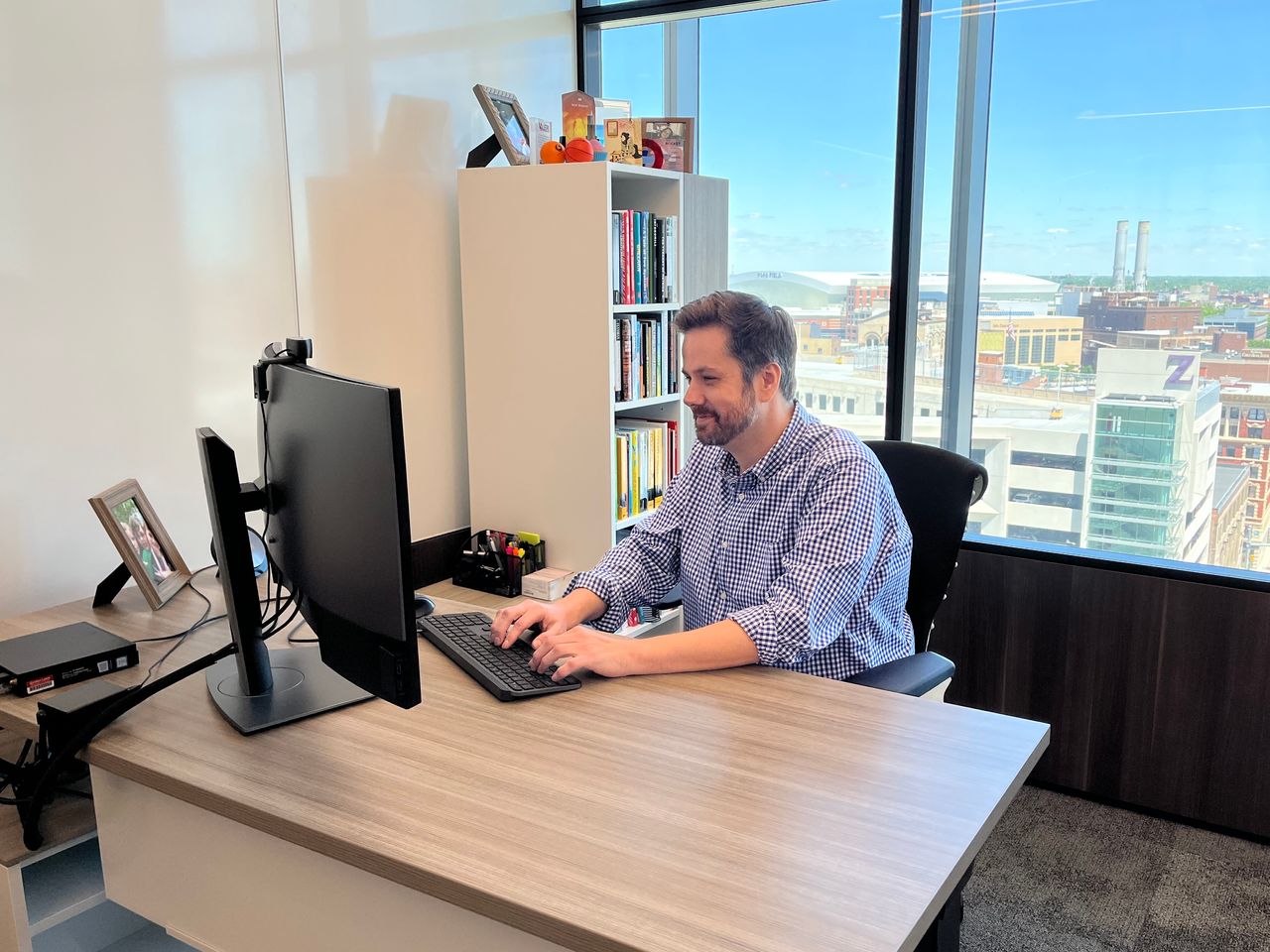Companies Are Drowning in Too Much AI
IT sellers are rolling out an avalanche of new generative AI features, leaving CIOs overwhelmed and workers confused
Businesses are facing an influx of new artificial-intelligence tools, many of which overlap and cause confusion for employees, as corporate-technology sellers race to capitalise on the generative AI trend.
“Since the ChatGPT excitement, I must have had at least 20 to 25 vendors in my portfolio reach out to me saying, ‘Hey, let us tell you about our generative AI co-pilot strategy,’” said Milind Wagle, chief information officer at Equinix, one of the world’s biggest data-centre landlords.
Generative AI features, which can respond to user prompts by generating images or text, often come in the forms of co-pilots, or virtual assistants that work in tandem with an IT seller’s offerings, sometimes automating certain tasks within that platform. Wagle said Equinix is drowning in a flood of co-pilots—and he is trying to figure out how, if at all, they should coexist.
“I feel like there’s a co-pilot war that needs to sort of happen,” he said.
The co-pilot proliferation is leading to confusion for employees who are looking for a single common interface to accomplish certain tasks, Wagle said. It can also create potential governance risks if there is a possibility that private data from a company that interacts with the co-pilots could make its way into public training models for generative AI tools.
Gartner analyst Arun Chandrasekaran said IT sellers are feeling pressure to move into the generative AI space or risk falling behind, meaning some half-baked features will be rushed out without the proper privacy and security guardrails in place. Established IT sellers also need to consider security concerns, including whether a customer’s data can be fed back to train the model, because this is uncharted territory, he added.
Chandrasekaran estimates that a fifth of independent software vendors have stepped into the generative AI space since ChatGPT was launched about seven months ago—a huge amount of growth in a short time, he said.
“I don’t think I’ve had a partner or vendor meeting this year where I wasn’t pitched a generative AI play,” said Brian Woodring, CIO of Rocket Mortgage, a nonbank mortgage provider.

Sometimes the co-pilots appear in system updates as a freebie, and sometimes they cost extra, Woodring said. He added that in some cases, the generative AI features are tacked on, despite not being compelling additions or the best tool for the job.
“Everyone’s trying to fit it in everywhere,” he said, adding, “It’s not something you can just spread around like peanut butter. It’s not a coat of paint you put on your product afterwards and say, now it’s AI.”
In other instances, the features are things that Rocket Mortgage could confidently and more cheaply build in house, Woodring said. For example, a number of tools on the market pull and analyse data from phone calls, a feature that Rocket Mortgage was able to build itself, he said.
Tech executives said they are looking critically at new generative AI tools to distinguish between the truly compelling ones and the ones that are just paying lip service to the hype. How well the tools will be able to integrate with each other is another consideration.
“We want clarity on how we can connect every single one,” said Noé Angel, CIO at agriculture company NatureSweet. When tools are too fragmented, it ends up creating more work for those who have to manage them, he said.
Jim Stratton, chief technology officer of Workday, a provider of enterprise cloud applications for finance and human resources, said that longer term, he expects consolidation and clearer winners to emerge when it comes to certain AI capabilities, which could simplify things for companies.
But nearer term, navigating the complexity of the landscape remains a challenge. “There’s still a lot of noise at the moment,” he said.
 Copyright 2020, Dow Jones & Company, Inc. All Rights Reserved Worldwide. LEARN MORE
Copyright 2020, Dow Jones & Company, Inc. All Rights Reserved Worldwide. LEARN MORE
Chris Dixon, a partner who led the charge, says he has a ‘very long-term horizon’
Americans now think they need at least $1.25 million for retirement, a 20% increase from a year ago, according to a survey by Northwestern Mutual
Employment grew for the 16th consecutive month as companies expanded.
According to a recent PMI report, Qatar experienced its fastest non-energy sector growth in almost two years in June, driven by surges in both existing and new business activities.
The Purchasing Managers’ Index (PMI) headline figure for Qatar reached 55.9 in June, up from 53.6 in May, with anything above 50.0 indicating growth in business activity. Employment also grew for the 16th month in a row, and the country’s 12-month outlook remained robust.
The inflationary pressures were muted, with input prices rising only slightly since May, while prices charged for goods and services fell, according to the Qatar Financial Centre (QFC) report.
This headline figure marked the strongest improvement in business conditions in the non-energy private sector since July 2022 and was above the long-term trend.
The report noted that new incoming work expanded at the fastest rate in 13 months, with significant growth in manufacturing and construction and sharp growth in other sectors. Despite the rising demand for goods and services, companies managed to further reduce the volume of outstanding work in June.

Companies attributed positive forecasts to new branch openings, acquiring new customers, and marketing campaigns. Prices for goods and services fell for the sixth time in the past eight months as firms offered discounts to boost competitiveness and attract new customers.
Qatari financial services companies also recorded further strengthening in growth, with the Financial Services Business Activity and New Business Indexes reaching 13- and nine-month highs of 61.1 and 59.2, respectively. These levels were above the long-term trend since 2017.
Yousuf Mohamed Al-Jaida, QFC CEO, said the June PMI index was higher than in all pre-pandemic months except for October 2017, which was 56.3. “Growth has now accelerated five times in the first half of 2024 as the non-energy economy has rebounded from a moderation in the second half of 2023,” he said.
Chris Dixon, a partner who led the charge, says he has a ‘very long-term horizon’
Americans now think they need at least $1.25 million for retirement, a 20% increase from a year ago, according to a survey by Northwestern Mutual





















